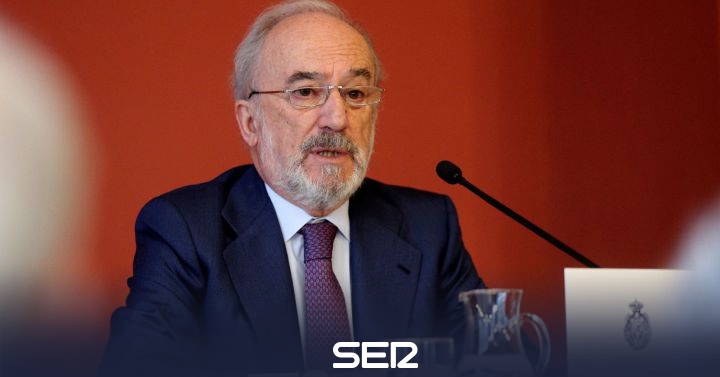The director of the RAE, Santiago Muñoz Machado, says that the Academy of Language “is not asleep and works for the feminization of language“but after studying the Magna Carta, the institution he directs has come to the conclusion that, in most cases, the generic masculine is inclusive and it would not be necessary to change or unfold it.
If there is a reform of the Constitution, the RAE proposes that the term ‘queen’ as holder also of the Crown: “It would be convenient to consider it, also when the next head of State will be, predictably, a woman”, explained this Monday the director of the institution, who added that ‘queen’ only appears twice in the 1978 text, both in the article 58, and appears reflected only as ‘consort’, never as holder of the Crown. Muñoz Machado also proposed that the Constitution be included in the term ‘princess‘, which does not appear either.
The RAE also suggests replacing in article 49 the term ‘diminished’ by ‘disabled’, the use of the expression ‘both fathers and mothers’ in article 39 and leaves the door open to unfold some charges, such as that of President of the Government: “President or president currently has an inclusive masculine wording, but grammatically the duplication is correct. Incorporating it or not in the Constitution depends on political decisions that do not correspond to the Academy”, Machado clarified.
However, there are other terms such as ‘Spaniards’, ‘citizens’, ‘ministers’, ‘military’ or ‘officials’ that have, Muñoz Machado has said, an “unequivocal” inclusive value, since they refer to both men and women. women.
In the words of Muñoz Machado, “the conclusion” of this report on inclusive language in the Constitution, commissioned at the time by Vice President Carmen Calvo, is “that the Constitution is grammatically impeccable.”
Speaking to the media before presiding over the extraordinary meeting of the General Commission of Secretaries of State and Undersecretaries, the vice president Carmen Calvo She pointed out: “Let’s hope it is not very disappointing for many women who want to be appointed according to our gender (…) In the street they call us vice-presidents, ministers, deputies, mayors and councilors … Women, if they call us ‘vice president’ we do not turn our face, they have to call us vice president to feel concerned, “said Calvo.
“Advancing in inclusive language is not in anyone’s hands to stop it … Is on the street“Calvo assured when asked if he considered the” battle “for inclusive language lost, in addition to pointing out that” it is in our lives “and that journalists also pick it up.
The academic Soledad Puértolas, one of the seven women who make up the RAE compared to thirty-eight men, explained in La Ventana, in conversation with Carles Francino that the role of the RAE is to be attentive to the use of language and to register it. Of course, you can be wrong in your assessment but your vocation is not to go ahead and set a pace but to record and collect the most common use. “
In that sense, he recalled that the report analyzes grammatically the language used in the Constitution and not the one currently used in the street and that in this context it is considered that the masculine plural of “the Spanish”, for example, is interpreted with clarity as an allusion to the set of men and women subject to law. Puértolas believes how correct it can be to unfold the genre on some occasions because it clarifies how repetitive or unnecessary on others.
In his opinion, the important thing about this report is that it does not close any door to the necessary advance in the achievement of equality. An aspect that claims to suffer as a writer. “I suffer it many times because I see myself very typecast in the so-called women’s literature or women’s literature, as if my works were not aimed at readers in general, and I ask myself, what is this, what world do we live in? “
–


